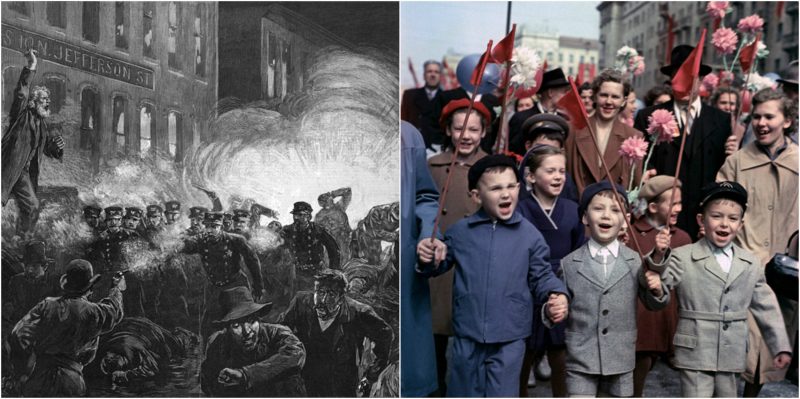In most countries around the world, 1st May is known as May Day, a celebration of springtime.
In some countries, especially in those with socialist and communist backgrounds, this date is also known as International Workers’ Day or Labor Day.
Since the 19th century, International Workers’ Day has been a day dedicated to the working classes all around the world. A day of celebration but also a day for protests and marches for the rights of workers.
May 1st was chosen to be International Workers’ Day because of a series of tragic events that happened in the United States, which began on that day in 1886. What became known as the Haymarket Affair was an event that left a huge mark on the history of the labor movement.
Everything began when thousands of workers around the country went on strike and held rallies to demand an eight-hour workday. People went on peaceful strikes, and one of their cries was: “Eight-hour day with no cut in pay.” On May 3rd, the Chicago workers assembled near the McCormick Harvesting Machine Company plant where August Spies (an American anarchist and one of the organizers of the eight-hour movement who was executed during the Haymarket Affair) called them to “hold together, to stand by their union, or they would not succeed.” Everything was peaceful up to that point, but when the bell sounded the end of the workday, some of the workers confronted the strikebreakers. The police reacted and started shooting at the crowd and killed two workers. This caused huge outrage among the local workforce and anarchists. Soon, fliers were printed that called people to a huge rally at Haymarket Square in Chicago.
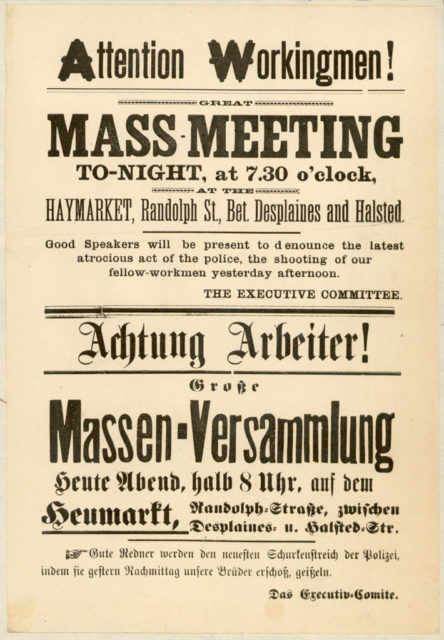
The following day, May 4th, the rally began without any violence, but around 10:30 pm, police arrived and started marching towards the crowd and the speakers on the rally. The workers were ordered to disperse, and as the police were getting closer, an unidentified person threw a home-made dynamite bomb at them.
The bomb exploded, killing policeman Mathias J. Degan and mortally wounded six other officers. After the blast, the police started to exchange fire with the crowd. By the end of the day, seven policemen and four workers were dead. On May 5th, another incident occurred in Milwaukee, Wisconsin, in which the state militia fired on a crowd of strikers killing seven workers. These bloody five days left a dark mark over the American labor movement, but eventually, they strengthened and succeeded in the battle for better working conditions for the workers.
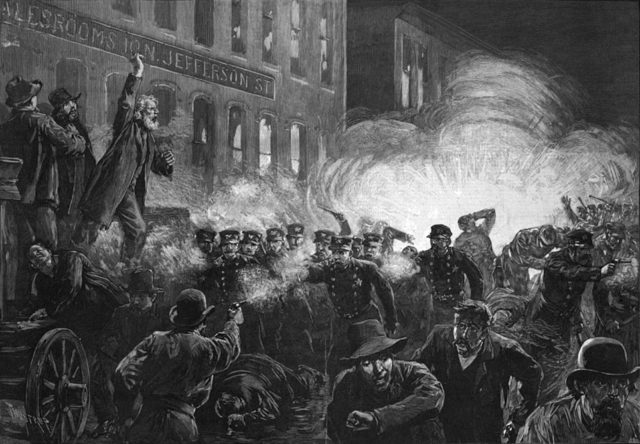
During a meeting of the first congress of the Second International that took place in 1889 in Paris, an international fight for a universal eight-hour work day was proposed.
It was decided that worldwide demonstrations would happen on the 1890 anniversary of the Chicago protests. The first international rally was very successful.
The following day, the May Day demonstrations appeared on the front pages of many newspapers around the world. The London Times wrote an article about the events, listing many European cities in which protests took place.
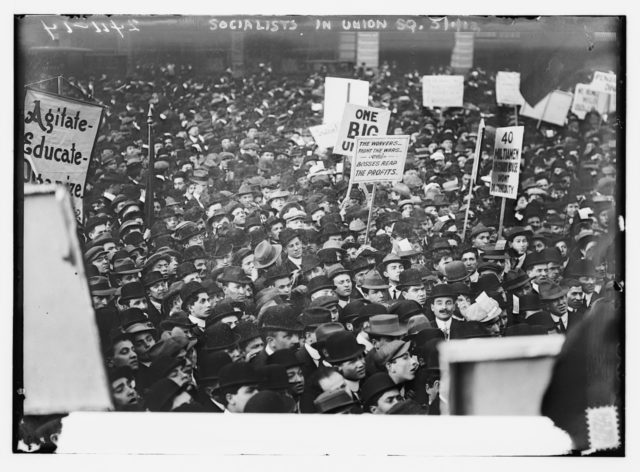
In 1904, in Amsterdam, the International Socialist Congress made the following proclamation:
“all Social Democratic Party organizations and trade unions of all countries to demonstrate energetically on the First of May for “the legal establishment of the 8-hour day, for the class demands of the proletariat, and for universal peace.”
The Congress demanded that every proletarian organization across the world should stop working on May 1st. They also advised the organizations to do this in a way that wouldn’t cause troubles for the workers.
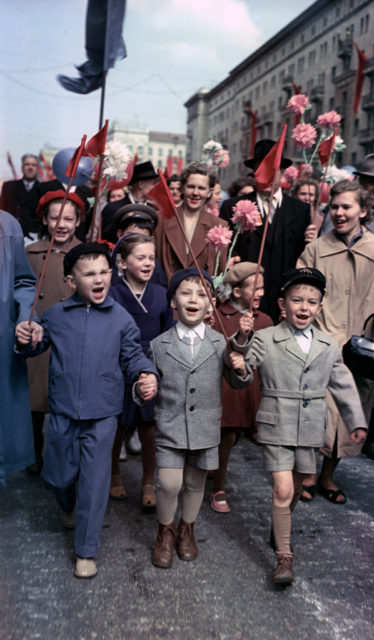
In most countries, International Workers’ Day is celebrated on May 1st, but some countries celebrate a Labor Day on a different date that is connected with their own historical events. In the United States, for example, Labor Day is celebrated on the first Monday of September since 1887.
In 1955, the Catholic Church declared the first of May as the holiday of “Saint Joseph the Worker,” the patron saint of workers and craftsmen.
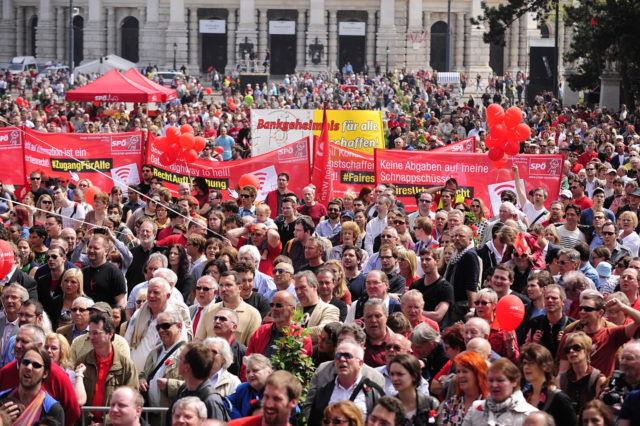
Today, May 1st is known for protests and rallies organized by a variety of different socialist, communist and anarchist groups across the world. International Workers’ Day remains one of the most important celebrations in communist, post-communist, and socialist countries including the People’s Republic of China, North Korea, Cuba, the former Soviet Union and in the countries from former Yugoslavia.
In recent years, there is also a growing trend where people celebrate International Workers’ day with all the characteristics of the ancient May Day festival by having a picnic rather than a march or a protest.
